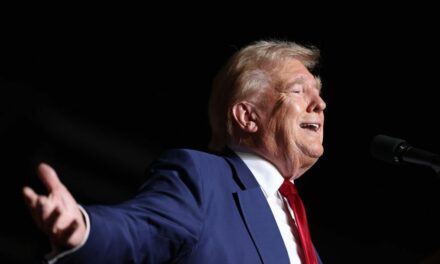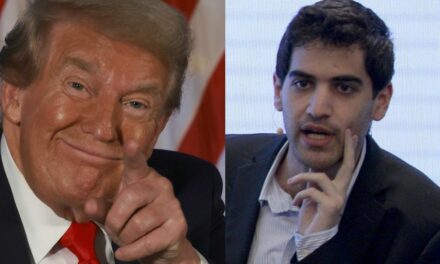We support our Publishers and Content Creators. You can view this story on their website by CLICKING HERE.

In a revealing Sunday interview with Fox News’ Maria Bartiromo, former first lady Melania Trump revealed some of the political backlash she has faced as the wife of embattled former President Donald Trump.
First lady Trump revealed that “the bank suddenly informed me they will not be able to do business with me anymore.” She also claimed that an “email distribution service provider just rapidly terminated my agreement.”
As Farage himself pointed out, ‘This is serious political persecution at the very highest level of our system. If they can do it to me, they can do it to you, too.’
These instances of disenfranchising people may seem only to affect the individuals, but the practice of de-banking has broader consequences as well.
She also detailed an incident with a university involving a philanthropic effort. She was donating money to help foster students gain access to scholarships. The university initially accepted her donation but, upon learning her identity, refused to accept her contribution. In this incident, Melania said, “They didn’t want to do business with me because of political affiliation, my political beliefs.”
Organizations refusing to associate with individuals over political differences is not a one-off occurrence with the former first lady; rather, this shows how ubiquitous this practice has become in our current political climate.
For example, Alliance Defending Freedom’s Jay Hobbs described a disturbing trend among banks that shut down organizations that differ from them in political or religious belief. He detailed an incident involving Bank of America and Indigenous Advance Ministries, a “charity [that] serves widows and orphans in Uganda, helping to meet basic physical needs while striving to equip and strengthen Christians to share the Gospel with their fellow Ugandans.” Bank of America informed the charity that it no longer wished to associate with Indigenous Advance’s “business type” because it exceeded the “bank’s risk tolerance.” This caused many headaches and inconveniences for the organization, which was preparing for an upcoming trip to help the widows and orphans.
De-banking was brought to more people’s attention when, in 2023, Nigel Farage, a figurehead of the U.K. Independence Party, claimed that his banks in the U.K. were closing his accounts. There is a great deal of evidence that his bank, Coutts, did intend to “exit” Farage as a customer, including some inside communications released in a dossier and obtained by Farage. These communications included statements about him, citing “significant reputational risks of being associated with him” and that his opinions were “at odds with our position as an inclusive organisation.”
Apparently, Nigel Farage holds beliefs contrary to those deemed acceptable by the banks with which he freely associated. His bank closed his account simply because it was a “bad look” to continue this association. These incidents have many worrying consequences in our heated political climate. As Farage himself pointed out, “This is serious political persecution at the very highest level of our system. If they can do it to me, they can do it to you, too.”
De-banking is a serious issue that is becoming increasingly widespread. It affects political leaders and actors and trickles down to private citizens associated with political figures, their philanthropic efforts, and legitimate charities. This de-banking effort is a clear weaponization of legitimate banking practice for political and religious purposes, and organizations that engage in this behavior need to be held accountable if real politics are to continue.

 Conservative
Conservative  Search
Search Trending
Trending Current News
Current News 







